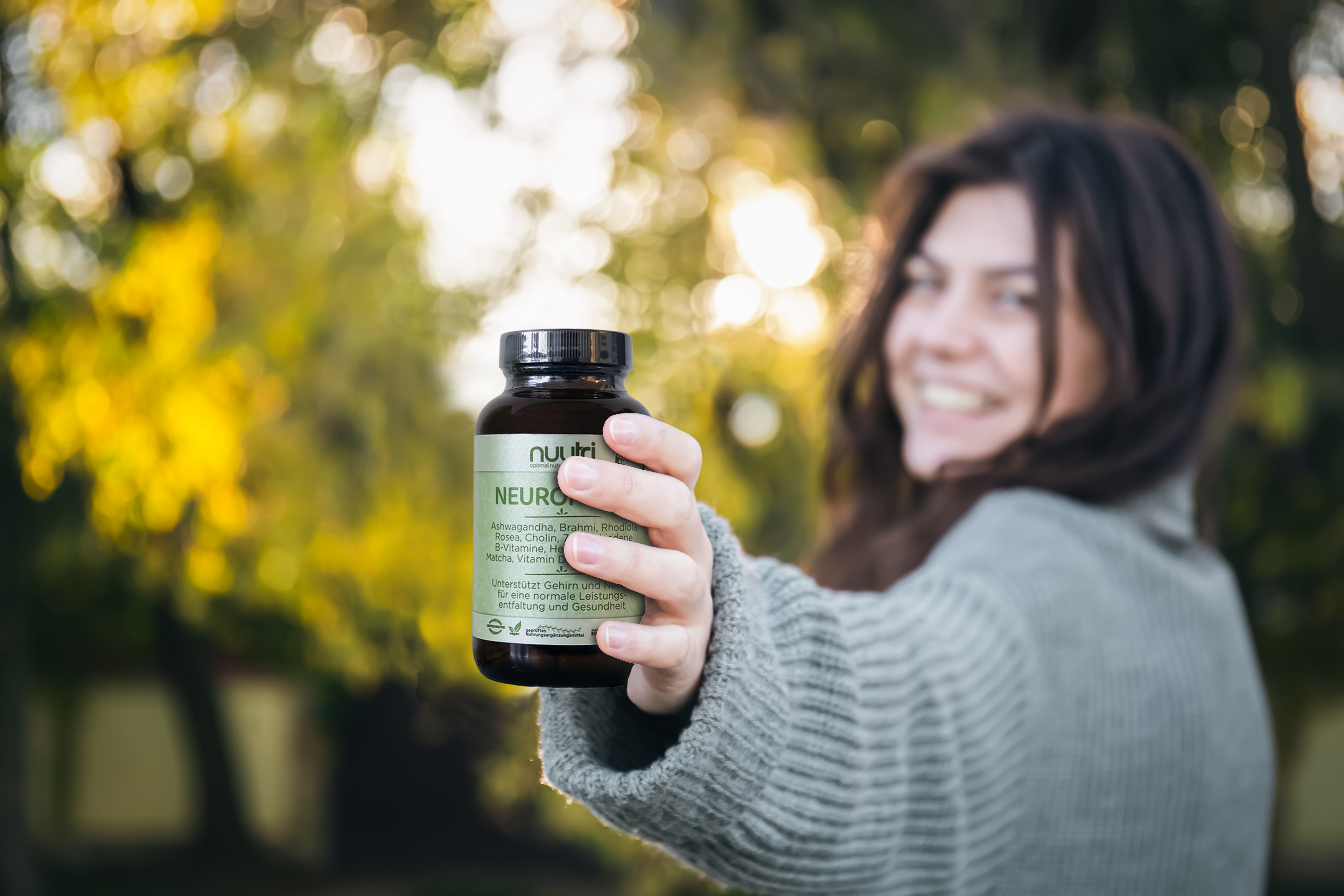
Rhodiola Rosea
Rhodiola Rosea, also known as rose root, offers a wide range of benefits for the brain and general health. This adaptogenic plant has a long history in traditional medicine and is increasingly being researched for its positive effects on cognition and well-being.
The plant can boost mental performance by improving concentration, memory and attention. It also helps to reduce stress and regulate the body's stress response, which can lead to better stress management and a reduction in tiredness and fatigue.
In addition, Rhodiola Rosea has antioxidant properties that can help reduce cell damage caused by free radicals. This may help improve overall brain health and reduce the risk of age-related memory loss and neurodegenerative diseases.
Rhodiola Rosea may also promote mood and emotional well-being by balancing the production of serotonin, dopamine and other important neurotransmitters. It can also support energy production in the brain and help increase mental stamina.
Rhodiola Rosea provides natural brain and health support. It can improve mental performance, reduce stress, protect brain health and promote emotional well-being. It is a promising supplement for those looking to improve their cognitive function and strive for a healthy brain.
Studies on Rhodiola Rosea

Here are some studies that show the potential effectiveness of Rhodiola Rosea:
- This clinical trial investigated the effect of Rhodiola rosea extract in the treatment of mild to moderate depression and found positive results on mood and cognitive function.
Darbinyan, V., Aslanyan, G., Amroyan, E., et al. (2007). Clinical trial of Rhodiola rosea L. extract SHR-5 in the treatment of mild to moderate depression. Nordic Journal of Psychiatry, 61(5), 343-348. DOI: 10.1080/08039480701643290
- This double-blind, placebo-controlled pilot study investigated the stimulant and adaptogenic effect of Rhodiola rosea extract on exam fatigue in students and found positive effects on stress reduction and cognitive performance.
Spasov, A. A., Wikman, G. K., Mandrikov, V. B., et al. (2000). A double-blind, placebo-controlled pilot study of the stimulating and adaptogenic effect of Rhodiola rosea SHR-5 extract on the fatigue of students caused by stress during an examination period with a repeated low-dose regimen. Phytomedicine, 7(2), 85-89. DOI: 10.1016/S0944-7113(00)80078-1
- This systematic review analysed randomised clinical trials of Rhodiola rosea and found evidence of its efficacy in improving cognitive function and brain performance.
Hung, S. K., Perry, R., & Ernst, E. (2011). The effectiveness and efficacy of Rhodiola rosea L.: a systematic review of randomized clinical trials. Phytomedicine, 18(4), 235-244. DOI: 10.1016/j.phymed.2010.08.014
- This review provides an overview of the stimulant effects of adaptogens, including Rhodiola rosea, with particular reference to their efficacy after a single dose.
Panossian, A., & Wagner, H. (2005). Stimulating effect of adaptogens: an overview with particular reference to their efficacy following single dose administration. Phytotherapy Research, 19(10), 819-838. DOI: 10.1002/ptr.1759
- This randomised, double-blind, placebo-controlled study investigated the effect of Rhodiola rosea extract in the treatment of stress-related fatigue and tiredness, and found positive effects on cognitive performance.
Olsson, E. M., von Schéele, B., & Panossian, A. G. (2009). A randomised, double-blind, placebo-controlled, parallel-group study of the standardised extract shr-5 of the roots of Rhodiola rosea in the treatment of subjects with stress-related fatigue. Planta Medica, 75(2), 105-112. DOI: 10.1055/s-0028-1088346
- This randomised study investigated the effect of two different doses of Rhodiola rosea extract on mental work capacity compared to placebo and control.
Shevtsov, V. A., Zholus, B. I., Shervarly, V. I., et al. (2003). A randomized trial of two different doses of a SHR-5 Rhodiola rosea extract versus placebo and control of capacity for mental work. Phytomedicine, 10(2-3), 95-105. DOI: 10.1078/094471103321659780
- In this double-blind, placebo-controlled crossover study, the influence of Rhodiola rosea extract on the mental performance of healthy physicians during the night shift was investigated.
Darbinyan, V., Kteyan, A., Panossian, A., et al. (2000). Rhodiola rosea in stress induced fatigue—a double blind cross-over study of a standardized extract SHR-5 with a repeated low-dose regimen on the mental performance of healthy physicians during night duty. Phytomedicine, 7(5), 365-371. DOI: 10.1016/S0944-7113(00)80055-0
- This study investigated the adaptogenic and central nervous system effects of Rhodiola rosea extract in mice and found positive effects on mental performance.
Perfumi, M., & Mattioli, L. (2007). Adaptogenic and central nervous system effects of single doses of 3% rosavin and 1% salidroside Rhodiola rosea L. extract in mice. Phytotherapy Research, 21(1), 37-43. DOI: 10.1002/ptr.2013
